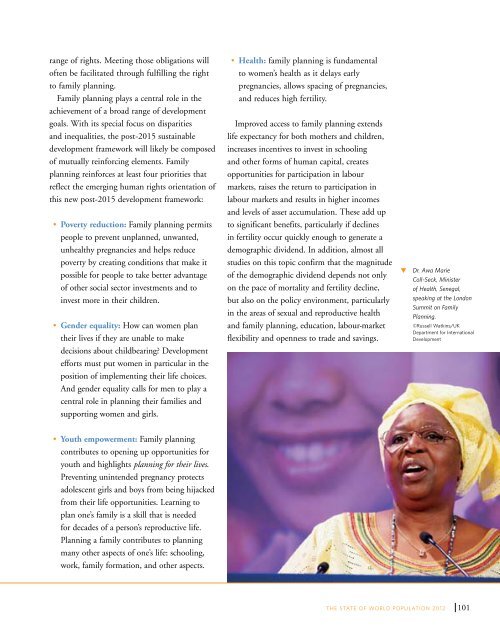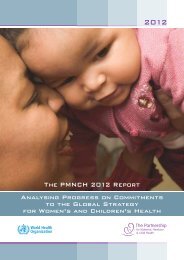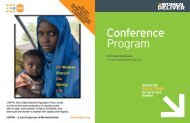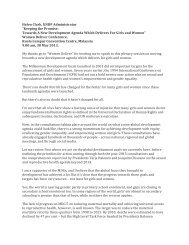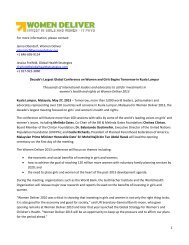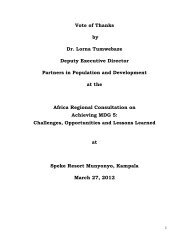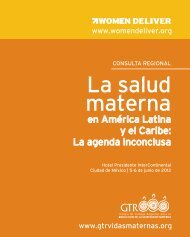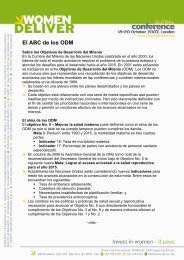State of World Population 2012 - UNFPA Haiti
State of World Population 2012 - UNFPA Haiti
State of World Population 2012 - UNFPA Haiti
Create successful ePaper yourself
Turn your PDF publications into a flip-book with our unique Google optimized e-Paper software.
ange <strong>of</strong> rights. Meeting those obligations will<strong>of</strong>ten be facilitated through fulfilling the rightto family planning.Family planning plays a central role in theachievement <strong>of</strong> a broad range <strong>of</strong> developmentgoals. With its special focus on disparitiesand inequalities, the post-2015 sustainabledevelopment framework will likely be composed<strong>of</strong> mutually reinforcing elements. Familyplanning reinforces at least four priorities thatreflect the emerging human rights orientation <strong>of</strong>this new post-2015 development framework:• Poverty reduction: Family planning permitspeople to prevent unplanned, unwanted,unhealthy pregnancies and helps reducepoverty by creating conditions that make itpossible for people to take better advantage<strong>of</strong> other social sector investments and toinvest more in their children.• Gender equality: How can women plantheir lives if they are unable to makedecisions about childbearing? Developmentefforts must put women in particular in theposition <strong>of</strong> implementing their life choices.And gender equality calls for men to play acentral role in planning their families andsupporting women and girls.• Health: family planning is fundamentalto women’s health as it delays earlypregnancies, allows spacing <strong>of</strong> pregnancies,and reduces high fertility.Improved access to family planning extendslife expectancy for both mothers and children,increases incentives to invest in schoolingand other forms <strong>of</strong> human capital, createsopportunities for participation in labourmarkets, raises the return to participation inlabour markets and results in higher incomesand levels <strong>of</strong> asset accumulation. These add upto significant benefits, particularly if declinesin fertility occur quickly enough to generate ademographic dividend. In addition, almost allstudies on this topic confirm that the magnitude<strong>of</strong> the demographic dividend depends not onlyon the pace <strong>of</strong> mortality and fertility decline,but also on the policy environment, particularlyin the areas <strong>of</strong> sexual and reproductive healthand family planning, education, labour‐marketflexibility and openness to trade and savings.tDr. Awa MarieColl-Seck, Minister<strong>of</strong> Health, Senegal,speaking at the LondonSummit on FamilyPlanning.©Russell Watkins/UKDepartment for InternationalDevelopment• Youth empowerment: Family planningcontributes to opening up opportunities foryouth and highlights planning for their lives.Preventing unintended pregnancy protectsadolescent girls and boys from being hijackedfrom their life opportunities. Learning toplan one’s family is a skill that is neededfor decades <strong>of</strong> a person’s reproductive life.Planning a family contributes to planningmany other aspects <strong>of</strong> one’s life: schooling,work, family formation, and other aspects.THE STATE OF WORLD POPULATION <strong>2012</strong>101


